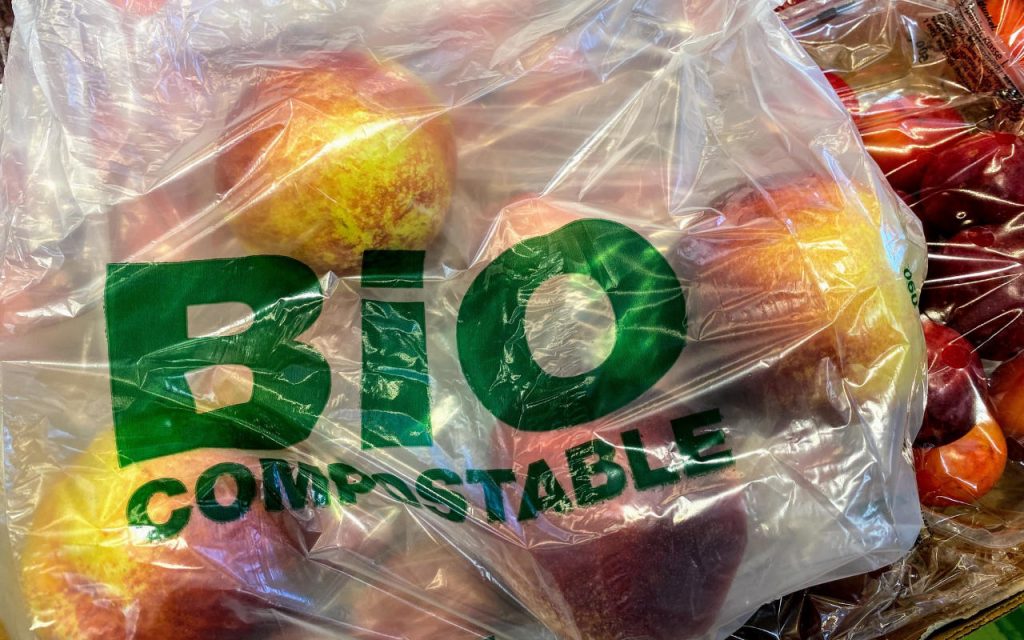By now, we all know the danger that plastic poses to the environment – so developments like biodegradable and compostable plastics are more welcome than ever. It’s really exciting to see the ingenuity and inventiveness on display by people trying to make a difference.
Sadly, some of that inventiveness seems to have been added into the marketing hype, too. Bioplastics and compostable plastics are pitched as a natural alternative to oil-based plastic – but remember; crude oil is naturally-occuring, too. Just because something’s natural doesn’t make it automatically eco-friendly, especially when it’s heavily processed.
There are some real disadvantages to biodegradable plastic that just about break even with the green credentials it claims to have – and once you know about them, weighing up biodegradable vs recyclable plastic is tougher than it first seems.
So, how long does it take to decompose? The short story: biodegradable plastic takes just as long to decompose as normal plastic. That’s up to 1,000 years in landfill. And as for compostable plastic? Well, that won’t break down in just any old compost heap.
But why? First, we need to know more about where compostable and biodegradable plastics come from and how they are processed at the end of their life.

How Biodegradable and Compostable Plastic is Made
Biodegradable polythene is just a standard polythene with a biodegradable masterbatch added to it. This means that, even if it does break down in landfill, it will simply turn into micro plastics. To make compostable plastic, you need to start with an organic material, normally derived from plants. The most common crops to use for bioplastic are corn and sugarcane.
And that’s where the problems begin.
Deforestation and Water Use
Growing these crops diverts land from food farming – or worse, destroys natural habitats. Fresh water, already a scarce resource, is needed in huge quantities to grow and process these compostable plastic-making crops. Processing turns the natural, organic compounds into PLA – which we’ll get to shortly.
So, while the crude oil that normal plastics derive from isn’t exactly risk-free, environmentally speaking, the current so-called eco alternative is perhaps even more actively destructive.
Processing
The sugars in the crops are what drive the process. When corn is used, the kernels are ground down and a chemical called dextrose (a simple sugar) is extracted. Bacteria ferment the sugar to produce lactic acid – as a repeating unit to make polylactic acid, or PLA.
But that’s not all that’s produced. The energy required is comparable to that needed to make any other plastic material, often relying on fossil fuels anyway – meaning CO2 emissions are produced, too.
PLA is chemically a plastic and it behaves in a similar way to other plastics, which means it’s tough and not prime to tarnishing. And that means it’s actually hard to break down naturally.
Industrial Composting
This is where things get a little bit sneaky – because compostable plastic actually needs to be processed at an industrial composting facility to break down. You can’t just throw it away and expect it to break down like an apple core or a banana skin. It doesn’t work that way.
The good news is that in an industrial composter, microbes will break PLA down into nothing but plant material, carbon dioxide and water. But industrial composting needs lots of energy to produce heat, and produces even more carbon emissions in the process.
The Reality of Bioplastics
The reality of biodegradable and compostable plastic isn’t as rosy as it first seems – because nearly all compostable plastic ends up in a landfill instead of being composted. Biodegradable plastic can’t be composted or recycled, and if it does break down in landfill conditions, the end result will only be microplastics.
Like other plastics, PLAs decompose very slowly in landfill – starved of oxygen, larger bioplastic items can take up to 1,000 years to decompose. Bottles made of bioplastic can take hundreds of years, while plastic bags can take around 10-20 years.
Worse still is that these plastics give off methane when they go to landfill; a greenhouse gas 20 times more powerful than CO2.
Is Polythene Eco-friendly?
Well, polythene is still a plastic – so it’s not inherently eco-friendly. But it can be recycled and used several times over, before being destroyed by incineration – or one day, fed to plastic-eating bacteria (a new process in development).
Polythene’s recyclability makes it less impactful to the environment than bioplastics currently are – but bioplastic and compostable plastic development is ongoing, too.
There are many kinds of alternative plastics, not just PLA; but for now, and possibly for a long time to come, recycling the plastic in circulation is our best bet.
100% Recycled and Recyclable Packaging
Get high quality, customisable recyclable poly bags, from NPF Packaging. Order our fully recyclable polythene packaging products – printed, tinted and specified to your exact requirement.
Get a quote now, or call us on 01773 820415.


